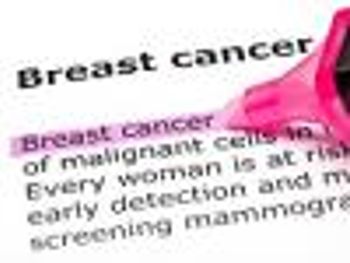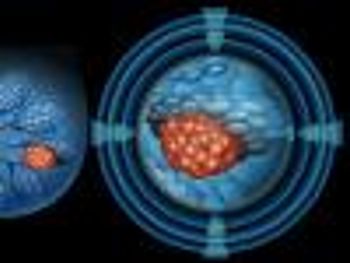
By searching for hyperactive cell signals in primary effusion lymphoma, researchers were able to find a pathway that can be blocked to limit tumor growth.

By searching for hyperactive cell signals in primary effusion lymphoma, researchers were able to find a pathway that can be blocked to limit tumor growth.

Top news of the day from across the health care landscape.

Top news of the day from across the health care landscape.

Top news of the day from across the health care landscape.

Pembrolizumab (Keytruda, Merck) plus chemotherapy met the primary endpoint of pathological complete response in patients with triple-negative breast cancer in a phase 3 study.

The findings represent the first positive phase 2b study of a personalized cancer vaccine in patients with high-risk melanoma.

Study provides the longest available follow-up on the survival of patients with advanced melanoma, renal cell carcinoma, and non-small cell lung cancer treated with nivolumab.

Abemaciclib (Verzenio, Eli Lilly) in combination with fulvestrant demonstrated a statistically significant improvement in overall survival among women with metastatic breast cancer previously treated with endocrine therapy.

Darolutamide, an androgen receptor inhibitor (ARi) for the treatment of patients with non-metastatic castration-resistant prostate cancer, was approved by the FDA this week.

Erdafitinib (Balversa, Janssen) is the first FGFR inhibitor to receive FDA approval for the treatment of patients with metastatic bladder cancer marked by FGFR gene mutations.

Investigators find that radiation equivalent to 3 CT scans prompts the growth of the p53 mutation in mice.

More colorectal cancer cases are being diagnosed in adults under the age of 50, with younger adults presenting with more advanced disease than those older than 50 years.

Pharmacists should develop treatment plans with an active interdisciplinary team and patient involvement.

Stigma around behaviors such as smoking or drinking found to effect funding for associated cancers.

Researchers achieve first success in linking a solid tumor with blood biomarkers, which is often an indicator of whether a patient with breast cancer will remain in remission.

If approved, pembrolizumab in combination with lenvatinib will be indicated for the first-line treatment of advanced unresectable hepatocellular carcinoma.

A specialty pharmacy’s specific expertise and experience in supporting patients with cancer is among its most essential attributes.

A novel potential biomarker test could identify patients who would benefit from more advanced lung cancer screening.

In addition to a natural variation in genetic makeup, approximately 1 in 1000 people inherit a damaged or mutated copy of the BRCA1 gene from a parent.

Top news of the day from across the health care landscape.

Photobiomodulation therapy found effective for the prevention of oral mucositis caused by radiation therapy.

Insulin levels in the mother's body during fetal development or possible changes to the mother's DNA expression passed to her offspring may increase the risk for developing leukemia.

Research highlights the importance of reaching non-white and younger populations with skin cancer prevention messages.

Data from the BEACON CRC trial show encorafenib, binimetinib, and cetuximab significantly improved overall survival in patients with BRAF-mutated metastatic colorectal cancer.

Study finds elevated risk factors for cardiovascular disease in postmenopausal women with a history of breast cancer.

New study demonstrates a novel approach of linking HER2-targeting antibodies with chemotherapy drugs for patients with breast cancer.

Research adds to a previously found correlation between yogurt consumption and a lowered risk of bowel cancer.

There are currently an estimated 8.1 million males and 8.8 million females in the United States with a history of cancer.

A protein called DDX3X has been found to regulate a melanoma-specific oncogene called MITF that is central to the development of the pigment cells in the skin.

A recent study analyzed the 10-year absolute risks of thromboembolism and bleeding in patients with a history of hematologic cancer.